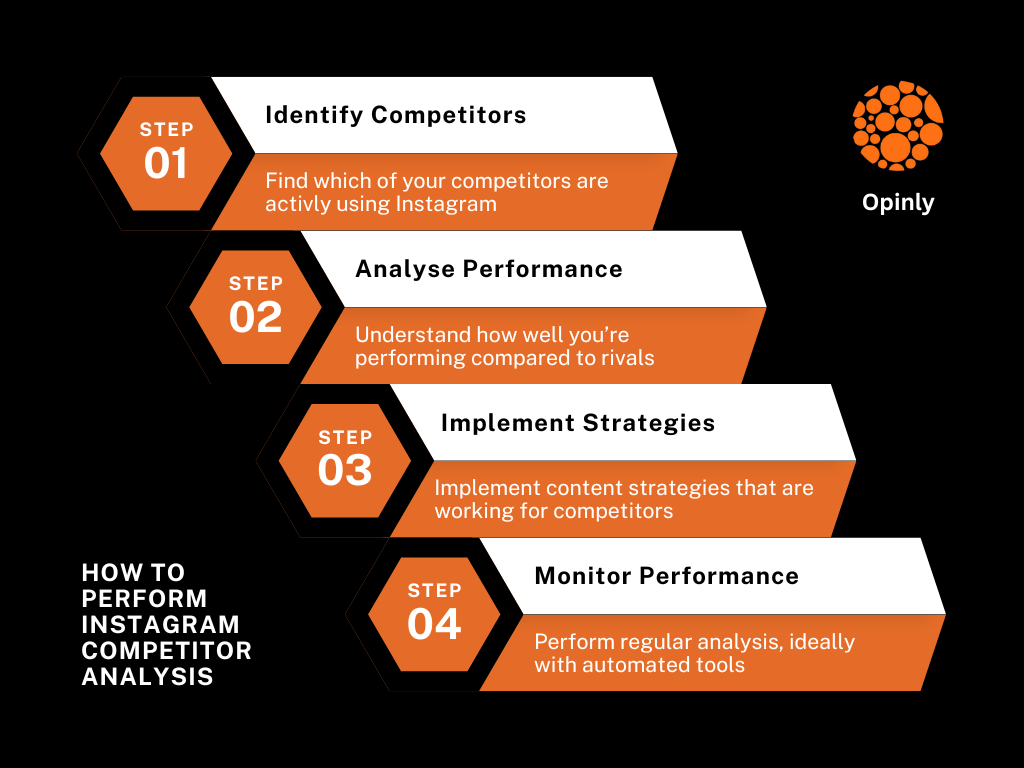What Businesses are Using Automation?
Discover how various industries are leveraging automation to boost efficiency and streamline operations in today's competitive market.

Automation is becoming a must-have tool for companies across different industries. But why is it so important today?
Automation refers to the use of technology to perform tasks without much human intervention. From factories using robots to package goods to chatbots answering customer questions online, automation is transforming how companies operate. The goal is simple: make things faster, more accurate, and less expensive.
In recent years, the use of automation has skyrocketed. According to a study by McKinsey, automation could boost global productivity by up to 1.4% every year. Additionally, 67% of companies are already using some form of automation to improve their operations. The rise of automation is not only helping businesses save time and money, but it’s also enabling them to offer better products and services to their customers.
Automation is here to stay, and businesses that adopt these technologies are positioning themselves for long-term success. In this article, we’ll explore which industries are leading the charge in automation and how it’s benefiting them.
7 Businesses That Are Using Automation

1. Manufacturing Industry
In the manufacturing industry, automation has completely changed how things are made. Factories once relied on large teams of workers to assemble products by hand, but now, robots are doing a lot of the heavy lifting. These robots work on assembly lines, where they perform repetitive tasks like assembling car parts or packaging products—much faster and more accurately than humans could.
Use Cases: Tesla, General Motors, and Toyota
- Tesla uses highly advanced robots to automate most of the car production process. This allows them to build electric cars faster and at a larger scale.
- General Motors relies on automation to help assemble and inspect vehicle parts, ensuring that their cars meet strict safety standards.
- Toyota is known for its use of robotics and automated systems to streamline production and reduce waste, helping them produce cars quickly while maintaining high quality.
Impact on Production Speed, Accuracy, and Safety
Automation has dramatically improved the speed at which products are made. Robots can work around the clock, without needing breaks or rest, which allows companies to produce more products in less time. This not only boosts production but also lowers costs.
Another key benefit is accuracy. Robots are incredibly precise and can repeat the same action thousands of times without making a mistake. This reduces the number of defective products and ensures higher quality overall.
Finally, automation improves safety. By taking over dangerous tasks—like heavy lifting, welding, or working with toxic materials—robots help reduce workplace accidents and injuries. Workers can focus on overseeing the machines and handling more complex tasks, which keeps them out of harm’s way.
2. Retail and E-Commerce

In the world of retail and e-commerce, automation is helping businesses work faster and more efficiently. From managing stock to helping customers and creating personalized shopping experiences, automation has made it easier for companies to meet the growing demands of online shopping. Let’s break down some key areas where automation plays a role.
Role of Automation in Inventory Management, Customer Service, and Personalization
- Inventory Management: Keeping track of what’s in stock is a big job, especially for large companies. Automation helps by using software to monitor inventory levels in real time. When a product runs low, the system automatically orders more. This ensures that popular items are always available and that companies don’t overstock items that aren’t selling.
- Customer Service (Chatbots): You’ve probably encountered chatbots when shopping online. These are automated systems that can answer customer questions, help with orders, and solve issues without needing a human customer service agent. Chatbots are available 24/7, meaning customers get help whenever they need it, speeding up service.
- Personalization: Automation also helps retailers offer personalized shopping experiences. Ever notice how online stores suggest products you might like? That’s because of automated algorithms that analyze your past purchases or browsing history to recommend items. This makes the shopping experience more tailored to each customer’s tastes.
Use Cases: Amazon, Walmart, and Shopify
- Amazon uses automation in almost every part of its business. Robots help manage inventory in warehouses, moving items around and preparing them for shipment. Their AI systems also provide personalized recommendations to shoppers, making the buying experience smoother and faster.
- Walmart leverages automation for both inventory and customer service. Automated systems track products and ensure shelves are stocked. They’ve also introduced chatbots to assist customers with basic questions, reducing the need for live representatives.
- Shopify, a platform for online businesses, uses automation to help sellers manage their stores more efficiently. Shopify automates tasks like tracking sales, managing stock levels, and sending personalized marketing emails to customers.
3. Healthcare and Medical Fields

In healthcare, automation is making a big difference in how doctors, nurses, and hospitals care for patients. From making appointments easier to diagnosing illnesses more quickly, automation is helping healthcare professionals provide better, faster, and more accurate care. Here are some key ways automation is transforming healthcare:
Examples of Automation in Healthcare
- Telemedicine: Telemedicine allows doctors to consult with patients online, through video calls, without the patient having to visit the clinic or hospital. Automated systems make it easy to schedule these virtual visits and share medical information securely. This has made healthcare more accessible, especially for people in remote areas.
- AI Diagnostic Tools: Artificial intelligence (AI) is being used to help doctors diagnose diseases. AI systems can analyze medical scans, like X-rays or MRIs, and detect signs of illnesses, such as cancer, much faster and sometimes even more accurately than humans. These tools help doctors make quicker decisions about patient care.
- Automated Appointment Scheduling: Gone are the days of waiting on the phone to book a doctor’s appointment. Automated systems now allow patients to schedule appointments online at their convenience. These systems can also send reminders to patients about upcoming visits and help reschedule if needed. This reduces the workload for clinic staff and makes it easier for patients to manage their health.
Use Cases: Mayo Clinic, Cleveland Clinic, and Kaiser Permanente
- Mayo Clinic is known for using advanced AI diagnostic tools to help with patient care. AI helps doctors identify patterns in patient data, allowing for earlier detection of diseases and personalized treatment plans.
- Cleveland Clinic uses automation for telemedicine services, making it easier for patients to consult with specialists from the comfort of their homes. Their automated scheduling systems also help streamline the patient appointment process, reducing wait times.
- Kaiser Permanente uses automation across its healthcare system, from electronic health records (EHRs) that help doctors access patient data quickly, to AI tools that assist in diagnosing diseases. Their automated systems also help manage prescriptions, ensuring patients get the medications they need on time.
Automation has greatly improved the efficiency of healthcare systems. By automating tasks like scheduling appointments, managing patient records, and diagnosing diseases, healthcare providers can focus more on patient care and less on administrative work. This means that doctors and nurses can spend more time with patients, leading to better care overall.
Additionally, automation helps improve patient outcomes. For example, AI diagnostic tools can catch diseases early, allowing for quicker treatment, which can lead to better recovery rates. Telemedicine gives patients easier access to healthcare, especially for those who live far from hospitals or have mobility issues.
Another big benefit is that automation reduces errors. Automated systems are less likely to make mistakes when scheduling appointments or managing patient information, which helps avoid misunderstandings and delays in treatment.
4. Financial Services and Banking

In the world of financial services and banking, automation is helping make transactions faster, more secure, and easier for both customers and businesses. With the rise of fintech (financial technology), automation is now used for everything from detecting fraud to improving customer service. Let’s dive into how automation is reshaping the finance sector.
Role of Automation in Fraud Detection, Customer Service, and Transaction Processing
- Fraud Detection: Automation plays a key role in protecting people’s money. Automated systems can monitor transactions in real time and spot unusual activity, such as large or suspicious transactions, which might indicate fraud. These systems alert the bank or customer immediately, helping prevent unauthorized access to accounts.
- Customer Service: Many banks and financial services now use chatbots and automated systems to handle customer inquiries. Whether you need to check your balance, report a lost card, or ask about a recent transaction, these systems can provide quick answers without waiting for a customer service agent. This makes banking faster and more convenient.
- Transaction Processing: Automation speeds up the process of completing transactions, such as transferring money between accounts or making online payments. Instead of waiting hours or even days for a transaction to be processed manually, automation allows it to happen almost instantly. This is especially useful in the fast-paced world of digital payments.
Use Cases: JPMorgan, PayPal, and Square
- JPMorgan uses automated systems for fraud detection, scanning millions of transactions every day to identify any unusual activity. They also use automation to process transactions more quickly, ensuring customers get faster access to their funds.
- PayPal has automated much of its customer service, using chatbots to help users resolve common issues like resetting passwords or checking transaction details. Their automated payment systems also ensure fast, secure transfers between accounts.
- Square, a company that helps businesses process payments, uses automation to handle millions of transactions daily. Square’s automated system ensures that payments are processed in real time, giving businesses and customers immediate access to funds.
Automation has made financial services more secure by improving fraud detection. Automated systems can analyze patterns of spending and quickly flag any suspicious transactions. This real-time monitoring helps banks and customers act quickly to prevent fraud, which gives people more confidence in their financial institutions.
Customer satisfaction has increased as a result of faster service and better security. People appreciate being able to access their accounts quickly, get help through automated customer service systems, and complete transactions without delays. Automation allows banks and financial services to provide a smoother, more efficient experience, making everyday banking tasks easier for everyone.
5. Logistics and Supply Chain Management

Automation is revolutionizing how companies manage their logistics and supply chains, making the process of getting goods from one place to another faster, more accurate, and more cost-effective. Whether it’s tracking shipments, organizing warehouses, or improving shipping processes, automation plays a huge role in keeping the flow of products smooth and efficient.
Role of Automation in Tracking, Shipping, and Warehousing
- Tracking: Automation helps logistics companies keep track of shipments in real time. Automated systems can monitor where packages are, estimate when they will arrive, and alert customers about any delays. This kind of tracking not only helps companies but also gives customers peace of mind, knowing exactly when to expect their deliveries.
- Shipping: Automated systems streamline the shipping process by sorting packages quickly, determining the best routes for delivery, and even predicting the fastest way to transport goods. This ensures that shipments get to their destinations faster and with fewer errors.
- Warehousing: In warehouses, automation is used to organize and move goods more efficiently. Robots and automated systems can pick items from shelves, pack them, and prepare them for shipping. This reduces the need for manual labor and speeds up the entire process, helping companies fulfill orders faster.
Use Cases: UPS, FedEx, and DHL
- UPS uses automation to optimize its shipping routes. Their automated systems analyze traffic and weather conditions to find the quickest and most fuel-efficient routes for their drivers, reducing delays and cutting costs.
- FedEx employs automation in its sorting facilities, where machines sort packages based on their destinations. This allows FedEx to process and ship thousands of packages much faster than if the process were done manually.
- DHL uses robots in its warehouses to automate the picking and packing of goods. These robots work alongside humans to speed up order fulfillment and reduce errors in the process. DHL also uses automated tracking systems to give customers real-time updates on their shipments.
Automation has had a big impact on delivery speed. By using automated systems to track shipments, sort packages, and plan the best delivery routes, logistics companies can get goods to customers much faster than ever before. This has become especially important as more people shop online and expect quick deliveries.
6. Hospitality and Tourism Industry

In the hospitality and tourism industry, automation is helping businesses like hotels and travel companies provide better service while also reducing operational costs.
Automation is making it easier for guests to book rooms, get quick answers to their questions, and enjoy more efficient services during their stay. Let’s look at how automation is changing the way hotels and travel companies operate.
Role of Automation in Booking Systems, Customer Service, and Room Management
- Booking Systems: Automation has transformed the way people book hotel rooms and travel. Online booking systems allow customers to search for available rooms or flights, compare prices, and make reservations instantly. These systems are often connected to multiple platforms, ensuring that availability is updated in real time. This makes it easier for customers to find what they need quickly and with minimal effort.
- Customer Service: Many hotels and travel companies use automated customer service tools like chatbots to assist guests. Chatbots can answer common questions, such as check-in times or booking confirmations, 24/7. This saves time for both the staff and the customers, as they don’t have to wait for a human representative to respond.
- Room Management: In hotels, automation is used to manage room availability and even control room functions. For example, automated systems can adjust the temperature, lighting, and housekeeping schedules based on the guest's preferences or check-in/check-out times. Some hotels even allow guests to check in, open their room door, and request services using their smartphones, all powered by automation.
Use Cases: Marriott, Expedia, and Airbnb
- Marriott hotels use automation to streamline guest experiences, offering mobile check-ins and smart room features that allow guests to control room settings from their phones. They also use automated booking systems to manage room availability across all their properties globally.
- Expedia, a major travel company, uses automation to make the booking process smooth and hassle-free for travelers. Their platform automates searching for flights, hotels, and vacation packages, allowing customers to compare prices and make reservations in real time.
- Airbnb automates much of its platform, from managing bookings to handling customer inquiries. Automation helps Airbnb hosts update listings, set availability, and even offer personalized experiences for guests. Additionally, automated systems help guests book their stay with ease and receive instant confirmations.
Automation has greatly improved the guest experience in the hospitality industry. With automated booking systems, customers can book rooms or flights instantly without the hassle of calling or emailing.
They can also get fast responses to their questions through chatbots, meaning they don’t have to wait for hotel staff or travel agents to assist them. In hotels, automated room management systems allow guests to enjoy a more comfortable stay with features like smart lighting or temperature control.
7. Marketing and Advertising

Automation is transforming how companies approach marketing and advertising, making it easier to reach potential customers, engage with them, and turn them into loyal clients. With the help of marketing automation tools, businesses can run more effective campaigns, stay connected with their audience, and make better use of data to improve their strategies.
Role of Marketing Automation Tools in Email Campaigns, Social Media, and Data Analysis
- Email Campaigns: Automation makes email marketing much more efficient. Instead of sending emails manually, businesses use automation tools to schedule and send personalized emails to large groups of people. For example, if a customer signs up for a newsletter, an automated system can send a welcome email right away, followed by other emails with special offers or updates. These tools can also track how many people open the emails and what they click on, helping businesses understand what works best.
- Social Media: Automation also plays a big role in social media marketing. Companies use automation tools to schedule posts in advance, ensuring that content is posted at the right times without someone having to be online constantly. Automated systems can also help track how posts are performing, showing which ones get the most likes, shares, and comments. This helps marketers adjust their strategies based on what resonates with their audience.
- Data Analysis: Marketing automation tools collect a lot of data about how customers interact with a brand, whether through emails, social media, or online ads. These tools analyze this data to provide insights into customer behavior, helping businesses understand what their customers want and how they can improve their marketing strategies. By analyzing this data, businesses can make smarter decisions about where to spend their marketing budget and how to tailor their messages to different audiences.
Use Cases: HubSpot, Salesforce, and Mailchimp
- HubSpot offers a comprehensive marketing automation platform that helps businesses manage everything from email campaigns to social media. It also provides detailed analytics to track the performance of marketing efforts and understand customer engagement better.
- Salesforce uses automation to streamline marketing efforts, allowing businesses to automate their email campaigns, track customer interactions, and generate leads more efficiently. Salesforce also provides tools for analyzing customer data, which helps companies better understand their audience.
- Mailchimp is known for its easy-to-use email automation features. Businesses can use Mailchimp to create email campaigns, set up automated follow-up messages, and segment their audience to send personalized content to different customer groups. Mailchimp also offers data insights to help businesses measure the effectiveness of their campaigns.
Automation has made it easier for businesses to generate leads (potential customers) by allowing them to run targeted marketing campaigns. Instead of sending the same message to everyone, businesses can use automation to send personalized content based on each customer’s interests or behavior. This helps attract more leads because customers are more likely to engage with content that feels relevant to them.
Conclusion
Automation has become an important tool for businesses in a wide range of industries, from manufacturing and healthcare to marketing and logistics. It’s helping companies streamline their operations, improve efficiency, and enhance the customer experience. By automating repetitive tasks, businesses can save time and resources, allowing their employees to focus on more critical and creative tasks.
Frequently Asked Questions
1. What is business process automation?
Business process automation is the use of technology to complete tasks that are normally done by people. It helps businesses save time by automating repetitive tasks, such as sending emails, managing inventory, or processing payments, allowing employees to focus on more important work.
2. Which industries are most automated?
Industries like manufacturing, retail, healthcare, financial services, and logistics are heavily automated. In these industries, automation helps with things like speeding up production, managing customer service, improving healthcare services, and making deliveries more efficient.
3. How does automation benefit businesses?
Automation helps businesses work faster, reduce mistakes, and save money by cutting down on manual tasks. It also improves customer service and allows businesses to grow by making processes more efficient and data-driven. Overall, automation helps businesses run smoother and more effectively.
4. Can small businesses use automation?
Yes, small businesses can absolutely use automation! There are many affordable tools that help small businesses automate things like marketing, customer service, and inventory management. Even with a small budget, automation can help save time and make the business more efficient.




